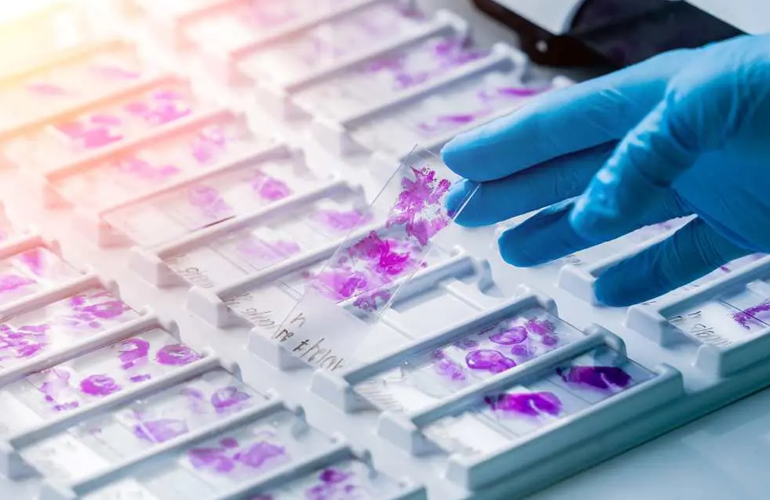Histopathology
Histopathology is the diagnosis and study of diseases of the tissues, and involves examining tissues and/or cells under a microscope. Histopathologists are responsible for making tissue diagnoses and helping clinicians manage a patient's care.
Why is histopathology important?
Histopathologists are doctors who work closely with other clinical specialties. They can reach a diagnosis by examining a small piece of tissue from the skin, liver, kidney or other organ. This is called a biopsy.
The role of the histopathologist
Many histopathologists specialise in specific organs such as the liver or skin, dissecting (‘cutting up’ or ‘trimming’) tissues for viewing under the microscope on a daily basis. For large specimens, such as samples of bowel or breast following surgery, these are dissected to select the most appropriate areas to examine under microscope. Histopathologists write reports on specimens, consult literature (past and current research findings), and many also have teaching and research responsibilities.
They will also attend multi-disciplinary meetings so their findings can be discussed with other clinicians. Treatments are then planned in detail and tailored to each individual patient.
Histopathologists also work directly with patients, for example, they may carry out procedures such as fine needle aspiration in head and neck or breast clinics. They increasingly have key responsibilities for cancer screening, at the moment for breast, bowel and cervical cancer, with other programmes expected in the near future.



